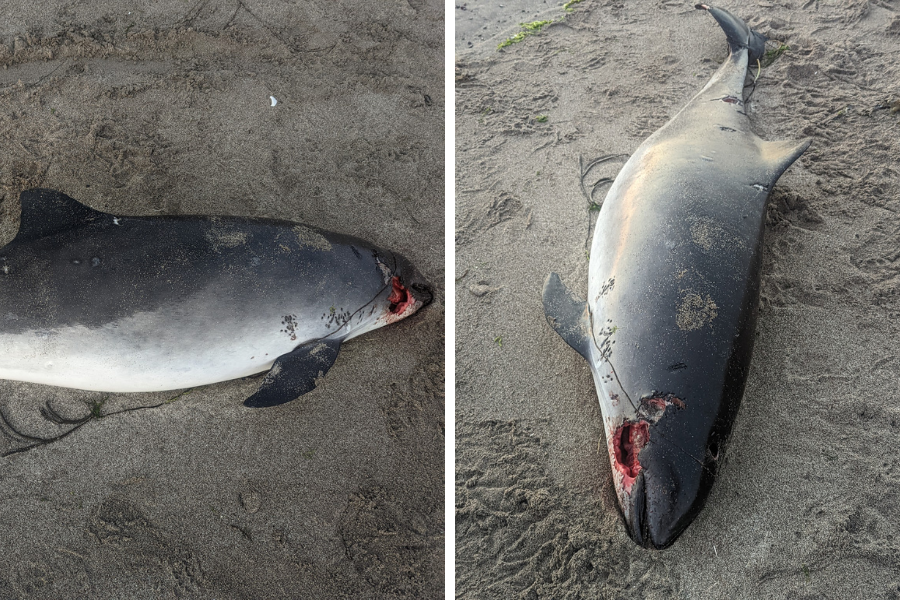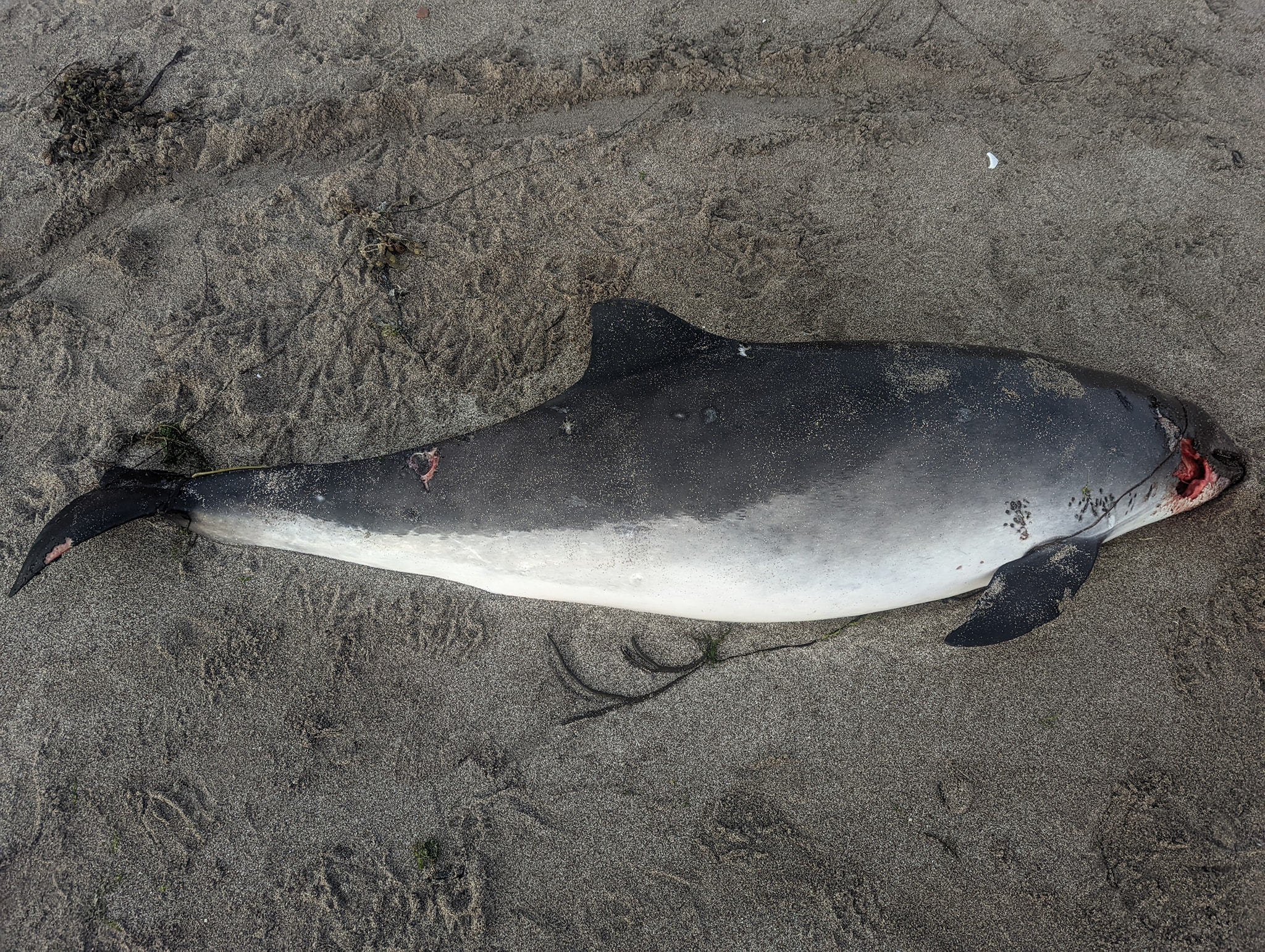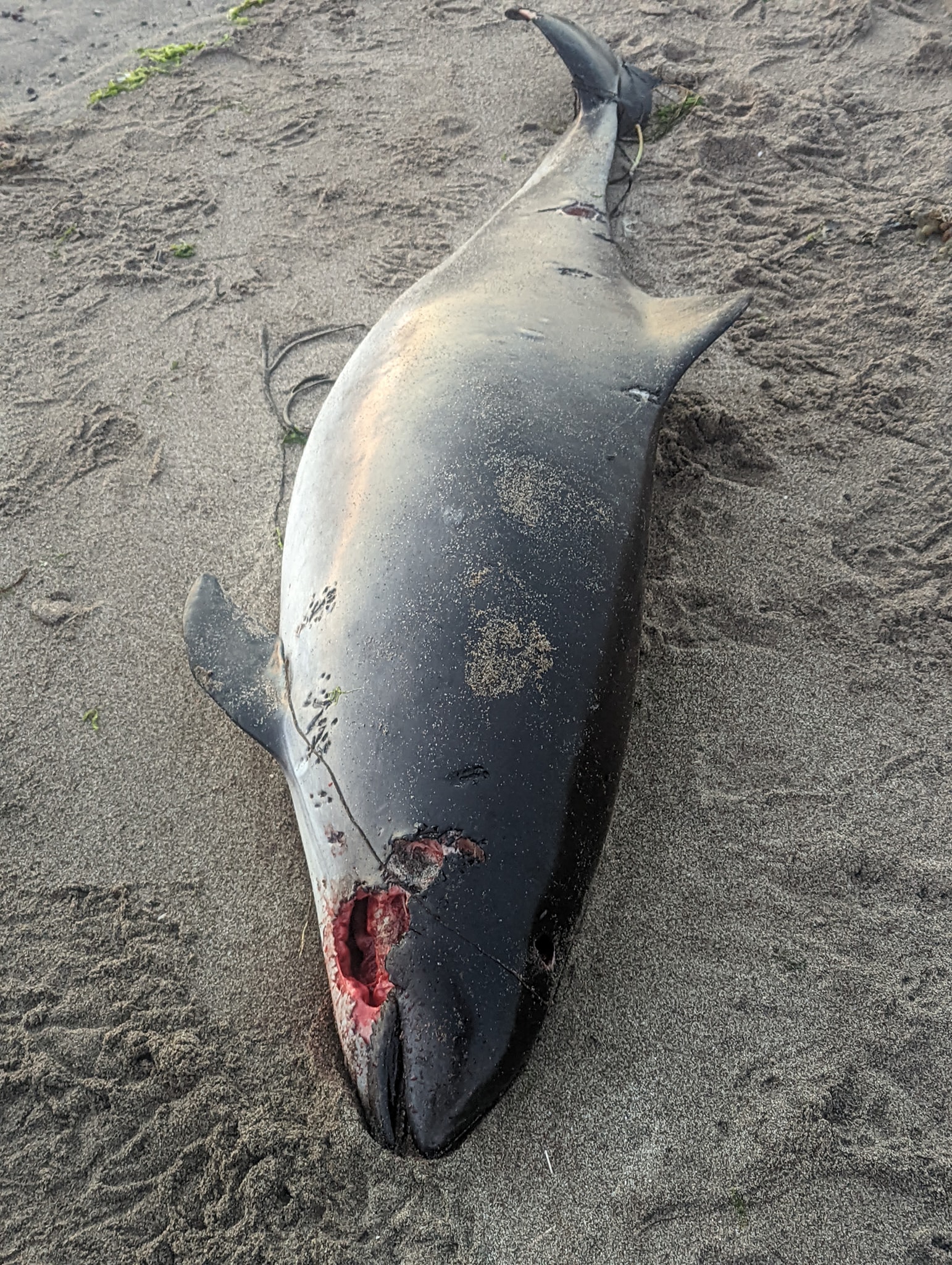
A MAN has spoken of his shock after he found a mutilated porpoise corpse washed up on a Scottish beach.
The harbour porpoise corpse was found with grisly injuries on Girvan beach by Paul Young.
One of the animal’s eyes appears to have been picked out and a large chunk of an area of flesh around its jaw has also been ripped out.

It is thought the injuries were sustained after death but the body responsible for monitoring beached animals said no post-mortem examination was possible because the porpoise corpse had been taken out by the tide.
Young, 47, who works as an accountant, found the animal on Sunday evening, around 300 yards from Girvan Pier.
He told The National: “It probably had been washed up around about an hour beforehand.
“It was right on the beach, there were bound to have been people that seen it but it was quite late on at night and it had just been washed up.
“There was damage that had been done to the side of its mouth but that looks like it had been done post-mortem.
“I’m not an expert but it looked quite young.
"Apparently - and I'm only going by hearsay - there was a pod of them close-by yesterday, there was a lot of activity in Girvan yesterday.”
He added: "It's not something you normally see here."

Nick Davidson, co-ordinator of the Scottish Marine Animal Stranding Scheme (SMASS), said he had been contacted and informed the animal had been washed away by the tide.
He added: “We won’t be able to say anything about the cause of death I’m afraid. Without a necropsy it’s just not possible in this instance.”
Sea animals become beached for a variety of reasons and human behaviour is partly to blame.
Often animals become beached because they are sick or injured while others are caused by hunting too close to shores.
But low-frequency sonar signals used by military vessels to detect submarines can cause haemorrhaging in some animals while others may beach themselves to escape the sound.
Orcas sometimes beach themselves intentionally to prey on seals on the shore before escaping back to the water.
Fishing and pollution can also contribute to animals becoming stranded if they are forced into shallower water to hunt.
Girvan Beach occasionally sees whirlpools caused by waste water which is discharged into the sea there.
As of 2021, the Zoological Society of London’s Cetacean Strandings Investigation Programme (CSIP) had logged more than 12,000 stranded cetaceans since 1990.
You can report beached animals to SMASS who will log the incident on their map of strandings and endeavour to send out volunteers to determine the cause of death and other facts about the animal.







